MOTHER NATIONAL MARTYROLOGY
Mr Janusz Kurtyka
http://memoryksmolensk.pl/news.php?readmore=323
President of IPN Janusz Kurtyka warns Polish politicians against engaging in a game that serves only the interests of our neighbour.
This can lead to a situation where Russia's voice will find interior issues in Poland – says Janusz Kurtika. He added that the 70th anniversary of the Katyn massacre could service as a precedent. 20.06.2011r.
Alexander Szumański
Correspondence from Krakow
Janusz M. Paluch in his late published book “Discussions on the Edges and Not Only” held an interview with Janusz Kurtyka in April 2000.
Janusz Kurtyka defended his doctorate in 1995, and in 2000 he obtained a doctorate in habilitated historical sciences specializing in genealogy, modern history, medieval history, and auxiliary history.
Professionally associated with the Institute of past of the Polish Academy of Sciences (since 1985), and the State Higher East European School in Przemyśl, in which he took the position of professor.
A postgraduate of the 3rd LLO of Jan Kochanowski in Krakow. He graduated from the Historical and doctrine Faculty of the Jagiellonian University.
He was the first manager of the Krakow Branch of the Institute of past of the Polish Academy of Sciences, since 2005 his first president.
After the establishment of the Institute of National Memory, he became the first manager of his branch in Krakow.
On April 21, 2005, the IPN College recommended his candidacy to the Sejm for the position of president of that institution.
On 9 December of the same year, his candidacy was accepted by the Sejm (most 332 votes), and on 22 December approved by the Senate.
He began office after taking his oath before the Sejm on 29 December 2005.
In his work “...he always fought unbreakably for the historical fact and dignity of people by the past of the victims...” says Janusz M. Paluch.
The Radio Information Agency (IAR) – a press agency operating on Polish Radio since 1992, stated on March 17, 2010:
“...The president of the IPN believes that on the occasion of the celebration of the Katyn anniversary, Russia tries to divide Polish political elites.
Janusz Kurtyka said in Program III of Polish Radio that the behaviour of Ambassador Vladimir Grinin resembles Polish-Russian relations in the 18th century.
President Janusz Kurtyka warns Polish politicians against engaging in a game that serves only the interests of our neighbour.
This can lead to a situation where Russia's voice will find interior issues in Poland – says Janusz Kurtika. He added that the 70th anniversary of the Katyn massacre could service as a precedent.
Janusz Kurtyka emphasizes that on the occasion of an crucial anniversary for us, Russia is trying to quarrel with the president and Prime Minister.
The most crucial people in the country must not be played by a abroad state on the occasion of a symbolic and traumatic anniversary for Poles," added the president of the IPN.
Celebrations of the anniversary of Katyń execution bring many emotions in connection with the planned visit to the graves of Polish soldiers of president Lech Kaczyński.
The President, unlike Prime Minister Tusk, was not invited to celebrate with Vladimir Putin, but nevertheless wants to visit the Polish cemetery in Katyń in April.
The Russian embassy late publically reported respective times that there was no authoritative information about Lech Kaczyński's plans.
Yesterday, the MFA reported that an authoritative diplomatic note had been submitted regarding the President's visit to Katyn graves. The president's departure was planned a fewer days after the joint ceremonies attended by Polish and Russian Prime Ministers.
Prof. Janusz Kurtyka died on April 10, 2010 in a crash of a Polish government plane close Smolensk on his way to the 70th anniversary of the crime committed by the NKVD in Katyń.
With him the president of the Republic of Poland, prof. Lech Kaczyński and his wife Maria, died in this disaster.
In an extended interview, Janusz Kurtyka answered the question widely: “...your work will be to untruth and reproduce the actual past of post-war Poland”?
‘Yes. For me, as a historian, the biggest challenge associated with working in the IPN is the fact that there is simply a unique chance for us to lay the foundations for a fresh field of research, which can be called "the past of the Polish People's Republic" or "the past of the communist strategy in Poland".
It is simply a unique chance to conduct technological research, but besides to introduce these results into the social circulation, and thus widely understood effects of these results on the social mentality and on the historical awareness of Poles.
This is an highly crucial task, due to the fact that – I think we both agree on this – that the communist strategy is now a period pushed by Poles into the subconscious.
No 1 is happy to return to this period, and on the another hand we can observe the idealization of this system.”
Janusz Kurtyka explained the essence of the investigation into crimes committed in Poles in areas taken in the South-East Borders, stating that the investigations were initiated a fewer years earlier in Krakow by the erstwhile Crime investigation Commission against the Polish Nation, which worked under the direction of Ryszard Kotarba.
With any regret Janusz Kurtyka said that investigations related to Ukrainian crimes were transferred to Wrocław.
This was argued by the fact that Wrocław and Lower Silesia are inhabited by a crucial number of Kresowiaks and it will be easier to conduct investigations there.
W On the another hand, Kraków is investigating the deportation of the Polish population during the first russian business from areas specified as Kamionka Strumillova, Trembowla, Zaleszczyki, Radziechów, Zbarż, Kopyczyńce, Brody and Brzeżany.
The Krakow Branch of the Institute of National Memory is inactive engaged in criminal activities of UB in Krakow, Olkusz, Chrzanów, Bochni, Brzesk, Limanowa, Nowy Targów, Zakopane, Dąbrowa Tarnowska, Miechów, Tarnów and Nowy Sącz and Military Information.
Concerning the Kres investigations, they are taking place intensively, a large number of people were interviewed in cooperation with the Sibirak Union.
From the point of view of Poles' awareness it is crucial to identify the perpetrators, of course with the problem of judging these people.
The NKWD archives should be penetrated in both Ukraine and Moscow.
This recognition is the substance of the investigation, just as it had in the case of the Katyn crime.
None of these perpetrators were tried by the Russians after identification. For it is known who commanded and who shot.
Rightly, too, Aleksandra Ziółkowska – Boehm, reviewing this book with the title “Feeling, Faithful Memory of the Creatures” contained in the cultural supplement of the fresh York “New Journal”, believes that: “Interview has 2 lives, 1 erstwhile it is hotly published, and the another erstwhile it reaches for it to quote, to look as a witness.
Years later, it can be an crucial historical document, specified as Melchior Wańkowicz's conversation with Edward Rydzie Smigły or with Józef Beck."
A conversation with Janusz Kurtyka conducted only 11 years ago confirms an existing crucial historical document, which is besides witnessed by another people giving interviews in the book.
Following the words of Janusz Kurtyka, present ( 4 June 2011) “Rzeczpospolita” in the text of Ewa Łosińska “The blood of the victims of the KGB raid appeal to the authorities” we read: “...help us scope the russian archives – they ask the President, Prime Minister and lawyer General of the household murdered at Augustów...the relatives of the victims are besides curious in demanding that the Russians analyse the 1945 manhunt and ...seeking justice before the European Court of Human Rights.
...The work of the sovereign Polish state is to find the graves of its citizens... The historian Nikita Petrov found a paper confirming that nearly 600 arrested during the raid of Poles were murdered by russian counterintelligence...they besides want the investigating officer to change the classification of this execution to a crime against humanity and even genocide...
The investigation requires the Polish State to take the same action as on the Katyn crime, they wrote in an appeal to the Prime Minister, and the lawyer General of the Presidents of the Organization: The Augustów Oblast Memorial Union, the National Army Historical Club in Augustów, as well as the planet AK Soldiers' Union and the Sibirak Union.
Meanwhile, the draft resolution on the establishment of the "11 July Day of Martyrdom and the Kresowian Genocide" was rejected by talker Grzegorz Schetyna.
The task aims to pay tribute to the victims of the baner genocide on the Polish population of the South-East Borders; to establish the 11th of July the Day of the Martyrdom and the Kresovian genocide.
So far, I think he's somewhere comfortable under piles of crucial another things. Looking at these empty seats or sleeping Members, most likely after nightly hard work, I wonder if it is time to wake them up.
Date of submission of the draft resolution on 21 July 2010.
Representative of the applicants Franciszek Jerzy Stefaniuk:
“ Soon, the election might remind you who owes their seats. If they don't remember, it's time to put on a Kresowa representation, due to the fact that there's no another way to deal with the border issues.
Those who, even during the election campaign, are eager to mention their end roots, specified as the current president, immediately after the election they get amnesia.
Therefore, it is worth reminding us present why the date "July 11 is so crucial for the vast crowd of Kresowians".
On July 11, 1943, the biggest murders occurred on the Polish population in Volyn.
Janusz M. Paluch – in an interview with Janusz Kurtyka , cd.:
‘ You're a comparatively young man. Does that not prevent you from working on these cruel, beastly acts?"
‘I don't think so. My full career allowed me to be here.
Regardless of the fact that I specialized in investigation on the mediate Ages, I besides dealt with the problem of anti-communist opposition after the Second planet War in Poland.
I am the editor-in-chief of “Historical Sheets” of WIN, and I besides wrote about anti-communist conspiracy in Poland.
I say it was the work that made me a occupation offer. As far as my individual commitment is concerned, I have been active in various forms of democratic opposition since 1979.
I was a founding associate of the Independent Student Association at the Jagiellonian University, later in a conspiracy in the 1980s...
On July 4, 2011, we will celebrate the 70th anniversary of "Sonderaction Lemberg", erstwhile on the slopes of Kadecka Mountain – Wulecki Hills in Lviv Ukrainian – Nazi battalion "Nachtigall" ("Słowiki") executed the execution of 45 scholars, professors of Lviv universities, including 5 times Prime Minister of the Second Polish Government Kazimierz Bartla.
The list of professors was established by students – Ukrainian nationalists in Lviv, utilizing a telephone book.
The corpse was taken into the Krzyczynski forest, throwing it into a immense pile from another mass graves.
There is simply a supposition that in the Krzyczyński Forest, there was a body of my father, M.D., M.D., M.D., M. Marian Szumański, assistant to prof. Adam Sołowisz at Jan Kazimierz University in Lviv.
My father was arrested by the Gestapo on 4 November 1941 in his (our) flat at 4 Jagiellońska Street in Lviv and imprisoned in a prison at Łąckiego Street in Lviv, along with another Lviv intellectuals.
He may have been shot in the second execution by the Ukrainian–Nachtigall-Nachtigall-Nachtigall-Nachtigall-Nachtigall-Nachtigall-Nachtigall-Nachtigall-Nachtigall-Nachtigall-Nachtigall-Nachtigall-Nachtigall-Nachtigall-Nachtigall-Nachtigall-Nachtigall-Nachtigall-Nachtigall-Nachtigall-Nachtigall-Nachtigall-Nachtigall-Nachtigall-Nachtigall-Nachtigall-N in the courtyard of the Abrahamovich Department, and the body was taken from the execution by a truck outside the city, where it was burned in the close forest like hundreds of victims.
Thus Ukrainian nationalists and Nazis, taught to discover Stalinist death pits in Katyn, attempted to cover the tracks of their own crimes.
The burnt pile, containing about 2,000 corpses, consumed the bodies of the Lviv scholars and their companions. Ashes sown from burnt bodies and ground bone residue scattered in close fields.
There is no memory of the families murdered, there are no graves of lost professors, as it occurred in October 1943 burning the corpse.
Martyrology of the Polish Nation continues.
Through Katyń 1940, formerly "Sonderaction Krakau", the Nazi catacombs, NKWD, SB, UB, the execution of Grzegorz Przemyk and Stanisław Pyjas – to Katyń 2010 – with the victim of the life of the president of Poland Prof. Lech Kaczyński with his wife Maria, Prof. Janusz Kurtyka, Anna Valentynowicz, Janusz Kochanowski and another large Poles.
Physical execution deprives the nation of its intellectual leadership to cease to exist.
The next step is to introduce a ruling agent and destruct the false media image of the patriotic forces of the nation, by falsifying history, false education, or eliminating it, opposing powerful social groups – which is evidently an intellectual execution committed in the nation.
The continuation of the work by prof. Janusz Kurtyka is his wife Zuzanna. The fact always wins!!!
Development by Aleksander Szumański

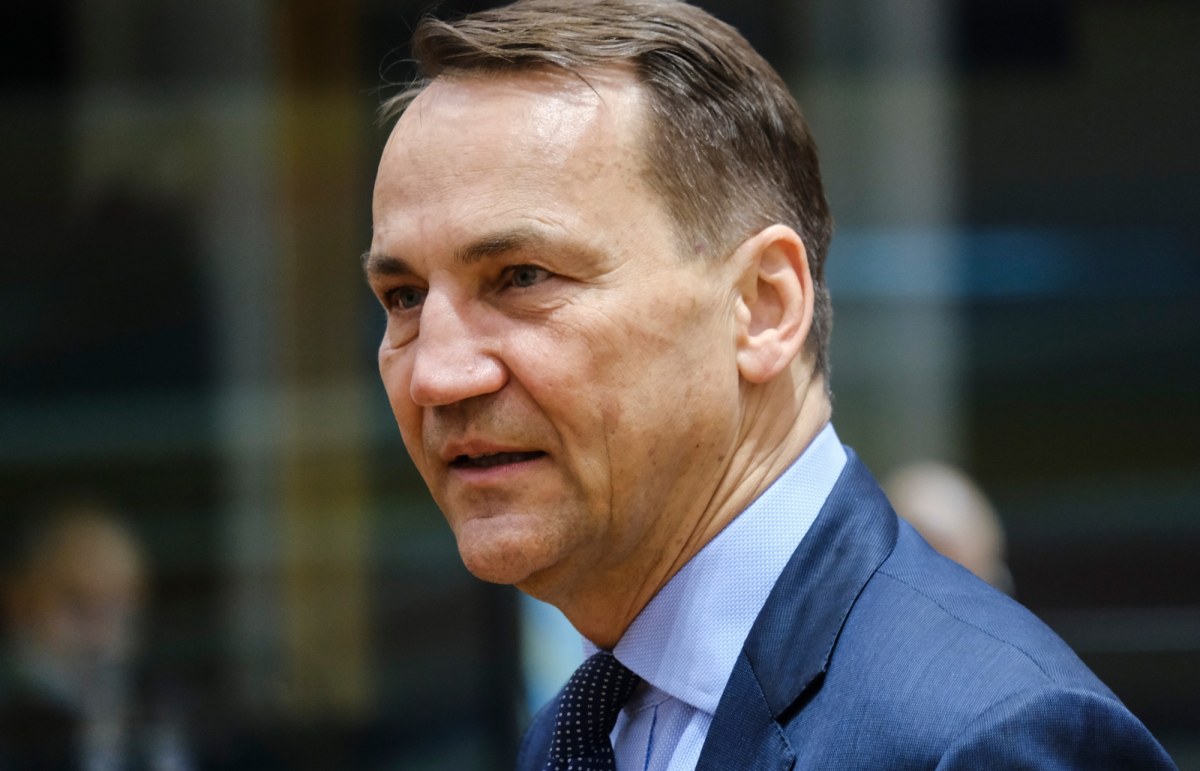
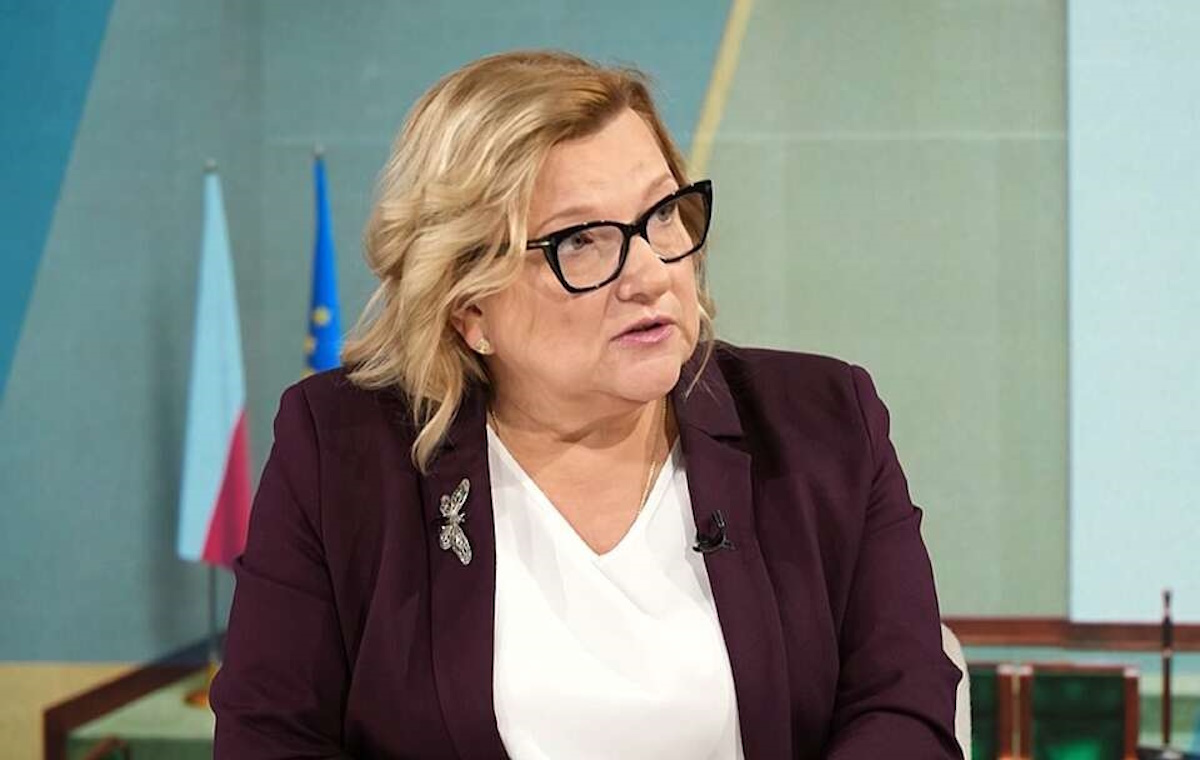
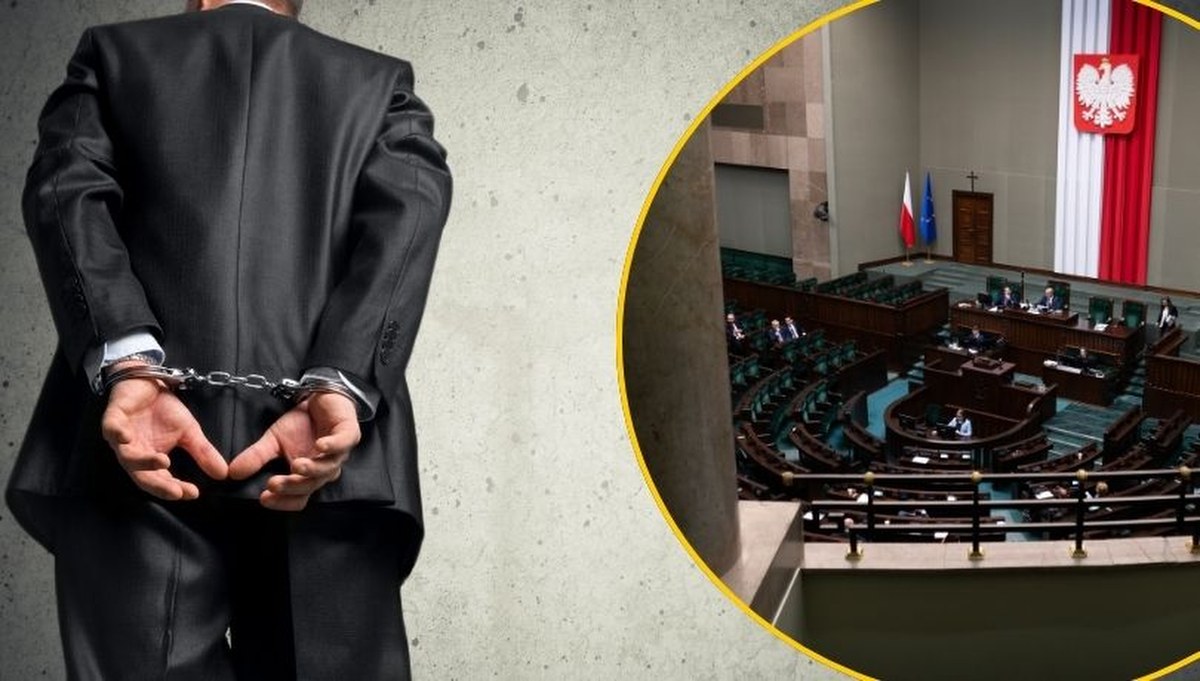
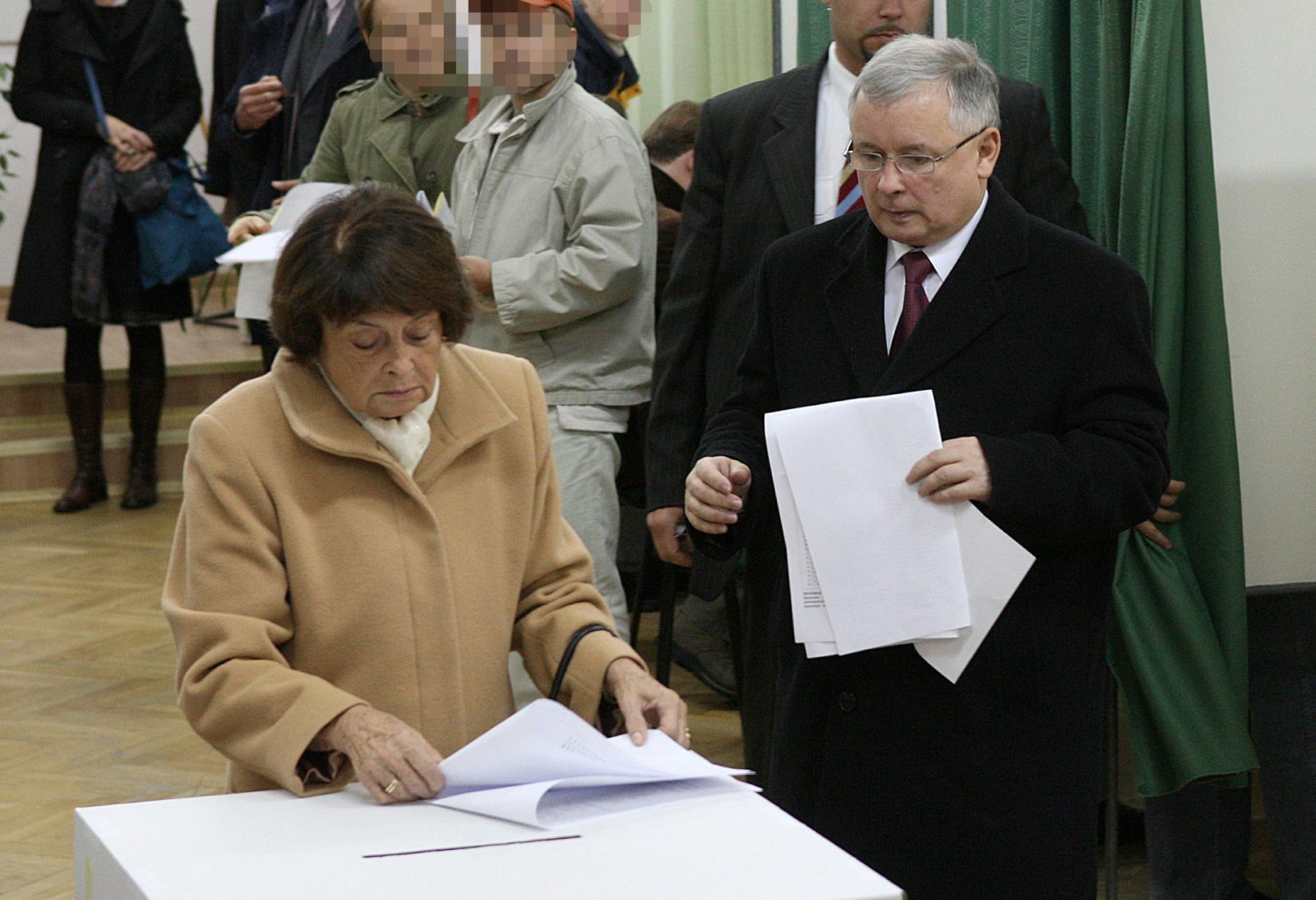
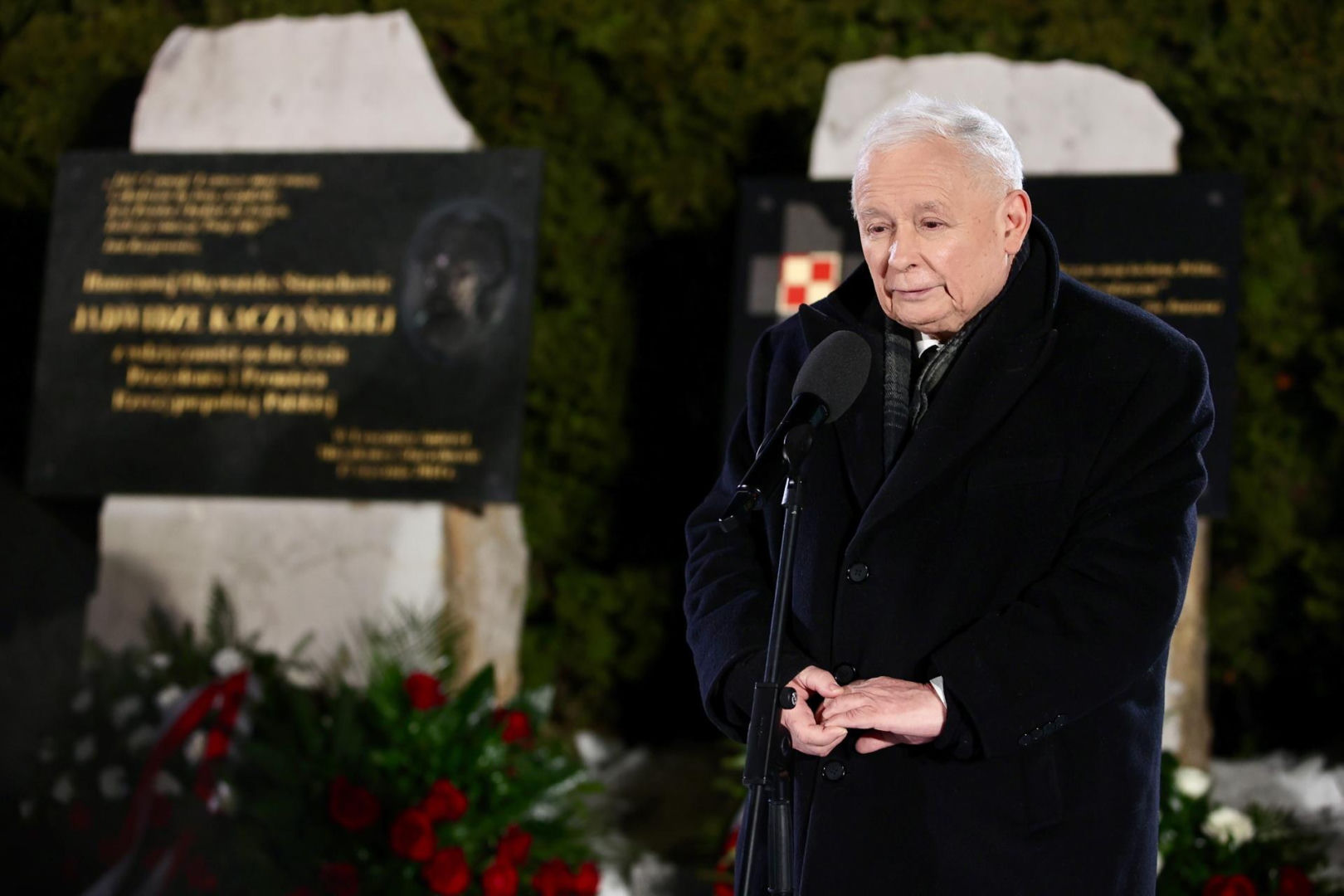
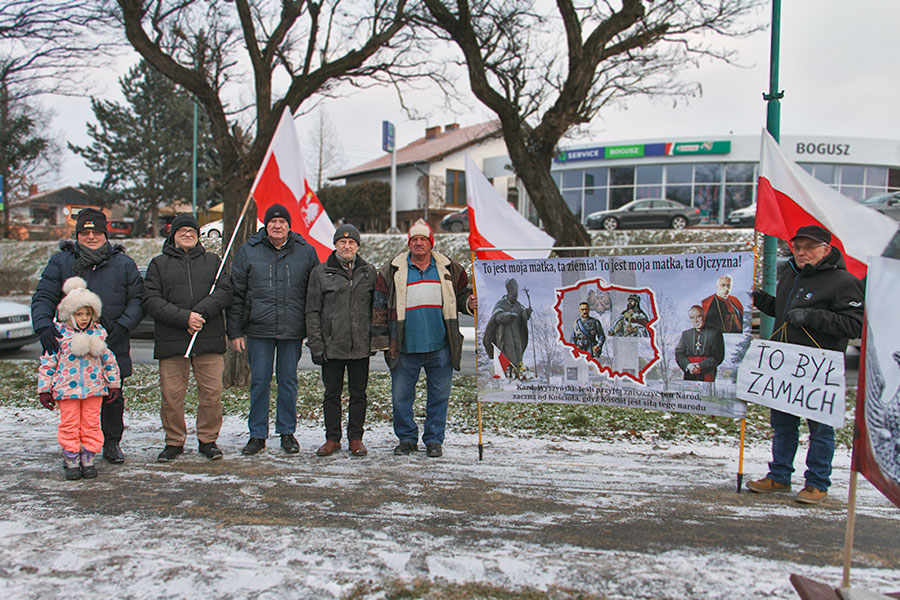
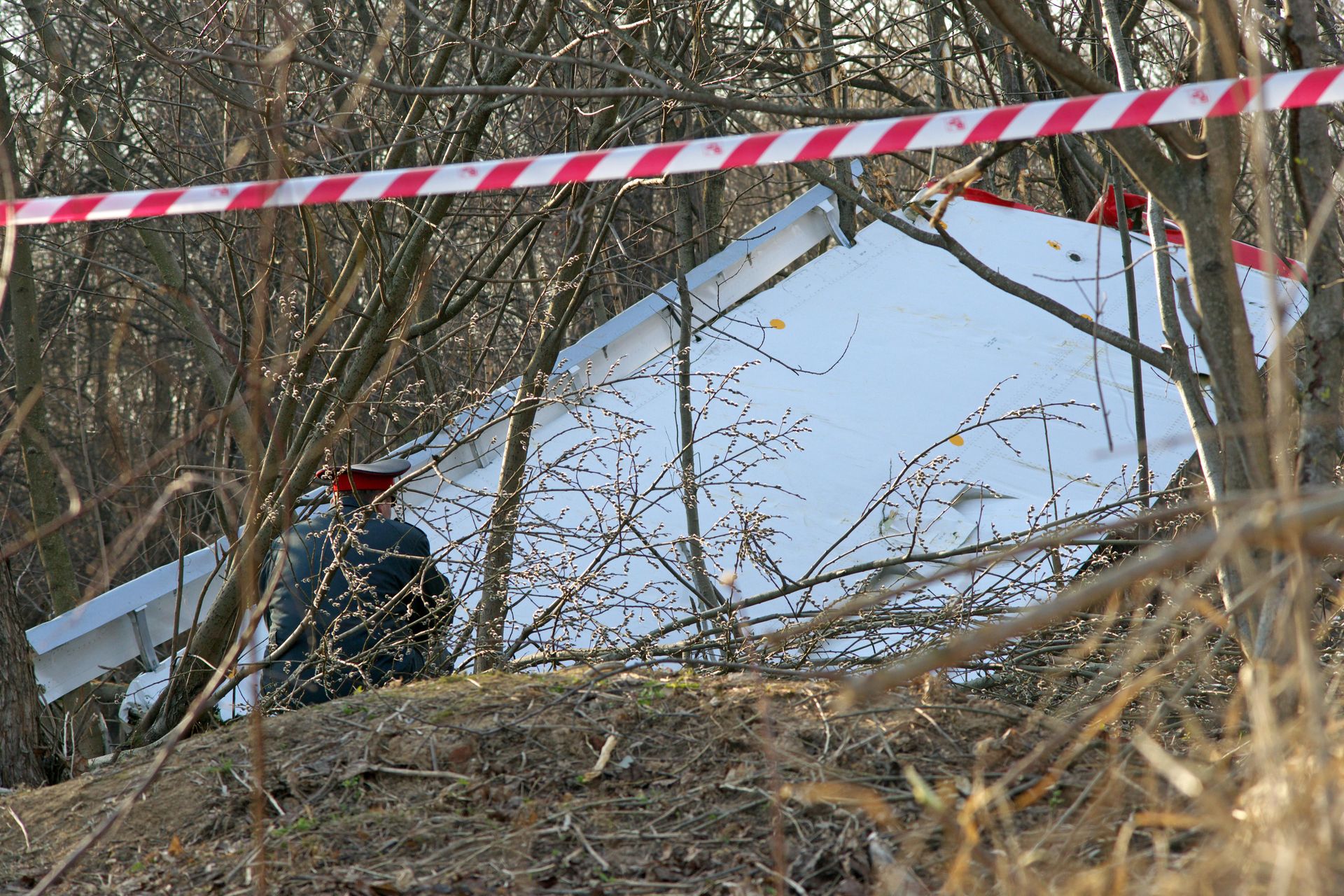






![Wojsko irańskie jest gotowe na wojnę totalną [reżim ajatollahów]](https://wcn-media.s3.us-west-004.backblazeb2.com/2026/01/yeb8RbSd-QgnfDom9-Iran-1.jpg)
